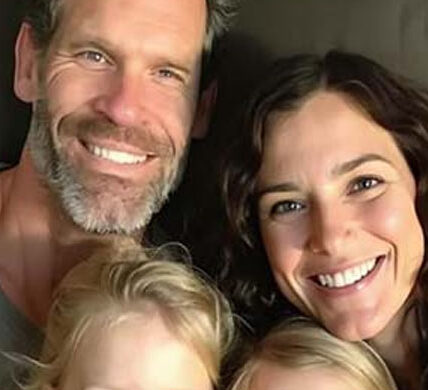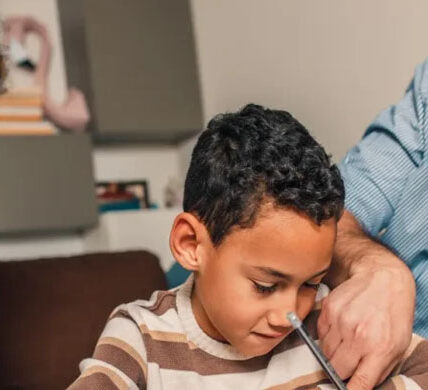One evening, a lady came in holding a baby tightly wrapped in an old blanket. She asked for a crib, but I told her we didn’t have one. She simply said, “Ok,” and asked to be left alone. That night, I heard a baby crying endlessly from her room. I checked the security feed only to see her staring blankly at the wall—no baby in her arms. I hurried to her room and knocked. As my hand touched the door, I heard the crying stop abruptly, like someone had pressed mute on a remote.
She opened the door slowly, her eyes swollen and red. She clutched the blanket to her chest, but it sagged like there was nothing inside. I asked if everything was alright. She nodded once, too quickly, then shut the door in my face. I stood there for a moment, my ears still ringing from the phantom wail.
I worked at this budget roadside motel just off the highway, and weird stuff happened sometimes—drunks, shady deals, people hiding from something. But this was different. There was something in the way she moved, like she was carrying the weight of something I couldn’t see.
The next morning, she came down for coffee. She looked pale, like she hadn’t slept in days. The blanket was still in her arms, her hands gripping it tightly. I tried to make small talk, asking if she was traveling alone. She said, “It’s just me and Daniel,” then looked down at the blanket like she was introducing it. My stomach tightened.
I wanted to ask more, but something in her eyes stopped me. That kind of raw hurt—you can feel it like static in the air. She took her coffee to go and walked back to her room. Later, when housekeeping went in, they told me she’d locked the bathroom door from the inside and wouldn’t open it. She stayed in there for over an hour.
That night, the crying came again. Long, drawn-out wails that made the hair on my arms stand up. I checked the cameras—again, she was on the bed, blanket in her lap, rocking back and forth, eyes fixed on the far wall. No baby.
I told myself I wouldn’t interfere, but by the third night, I couldn’t take it. The cries were keeping other guests awake. I went to her room and knocked firmly. She didn’t answer, so I called through the door, “Ma’am, is everything okay?” Silence. I was about to leave when I heard her whisper, “He’s not breathing.”
My chest tightened. I used the master key to open the door. She was kneeling on the floor, the blanket spread out in front of her, completely empty. Her hands were trembling. She looked up at me, tears streaking her cheeks. “I just needed somewhere warm for him,” she said.
I didn’t know what to say. She wasn’t drunk, wasn’t high—she was stone-cold sober. I asked her if she had family, someone we could call. She shook her head. “They think I’m crazy.”
I gently asked where Daniel was. Her eyes darted to the blanket, then away. “He’s gone. They took him because… because I couldn’t pay.” The way she said it—flat, resigned—hit me in the gut.
Over the next few days, she stayed. She paid cash, extending her room night by night. I started leaving food outside her door because I wasn’t sure she was eating. Sometimes she’d thank me, sometimes she wouldn’t. But she never let go of that blanket.
One morning, when I came in for my shift, she was sitting in the lobby. She asked if I could watch the blanket for a while—said she had to go somewhere. She didn’t say where. She placed it on the counter carefully, like it still held something fragile.
I couldn’t help myself. When she was gone, I peeked inside. It wasn’t a doll. It was just layers and layers of soft, worn fabric. No toys, no keepsakes, nothing. Just a hollow center.
That night, she didn’t come back. Her room was still paid for, but she didn’t check in. The next day, still nothing. I started to worry. On the third day, I called the police, just to make sure she was safe.
They knew who I was talking about right away. The officer told me her name was Maritza Duarte. She’d lost her three-month-old son in a house fire a year ago. Ever since, she’d been drifting from town to town, sometimes checking into shelters, sometimes cheap motels, always with that blanket. People reported hearing a baby crying when she was alone, but nobody could explain it.
I felt a heaviness settle over me. It explained the emptiness in her eyes, the way she clung to that bundle like it was life itself. But it didn’t explain where she’d gone.
A week later, I saw her again. She came walking up the side of the highway in the evening, hair tangled, carrying the blanket. She asked if I could give her a room for just one night. I said yes and didn’t charge her.
That night, though, the crying didn’t start. Instead, I heard soft humming from her room, almost like a lullaby. The next morning, she was gone again, but the blanket was folded neatly on the bed. Inside it, there was something new—a single baby sock, tiny and blue.
I never saw her after that. But sometimes, late at night, when the place is quiet, I swear I hear a faint humming in the hall. Not crying—just that same gentle tune.
Months passed. I told myself I’d moved on, but I hadn’t. One rainy afternoon, a woman came in asking about weekly rates. She had a baby with her—real, squirming, alive. She smiled when I handed her the keys. “My sister said this was a safe place,” she told me. Her name was Isela.
Later that night, she came down to the desk and said something strange. “When I put the baby down to sleep, I thought I heard someone humming in the corner. It was… comforting, actually. Not scary.”
I just nodded and told her maybe it was the wind in the vents. But deep down, I thought of Maritza and that final night she’d stayed. I like to believe she found some kind of peace, and maybe she left a little of it behind.
And here’s the twist that stayed with me—sometimes the people who seem the most “broken” are the ones holding other people together in quiet, invisible ways. I never knew what happened to Maritza after she left that blanket behind, but I know she carried more love than most people could bear.
If you take anything from this, let it be this: don’t write people off just because their pain looks strange to you. Sometimes, what looks like madness is just grief with no place to go. And sometimes, the smallest kindness—like letting someone keep a room a little longer—can be the only lifeline they have.
Thanks for reading. If this touched you, share it with someone who needs reminding that compassion costs nothing. And maybe hit the like button, so more people hear Maritza’s story.



